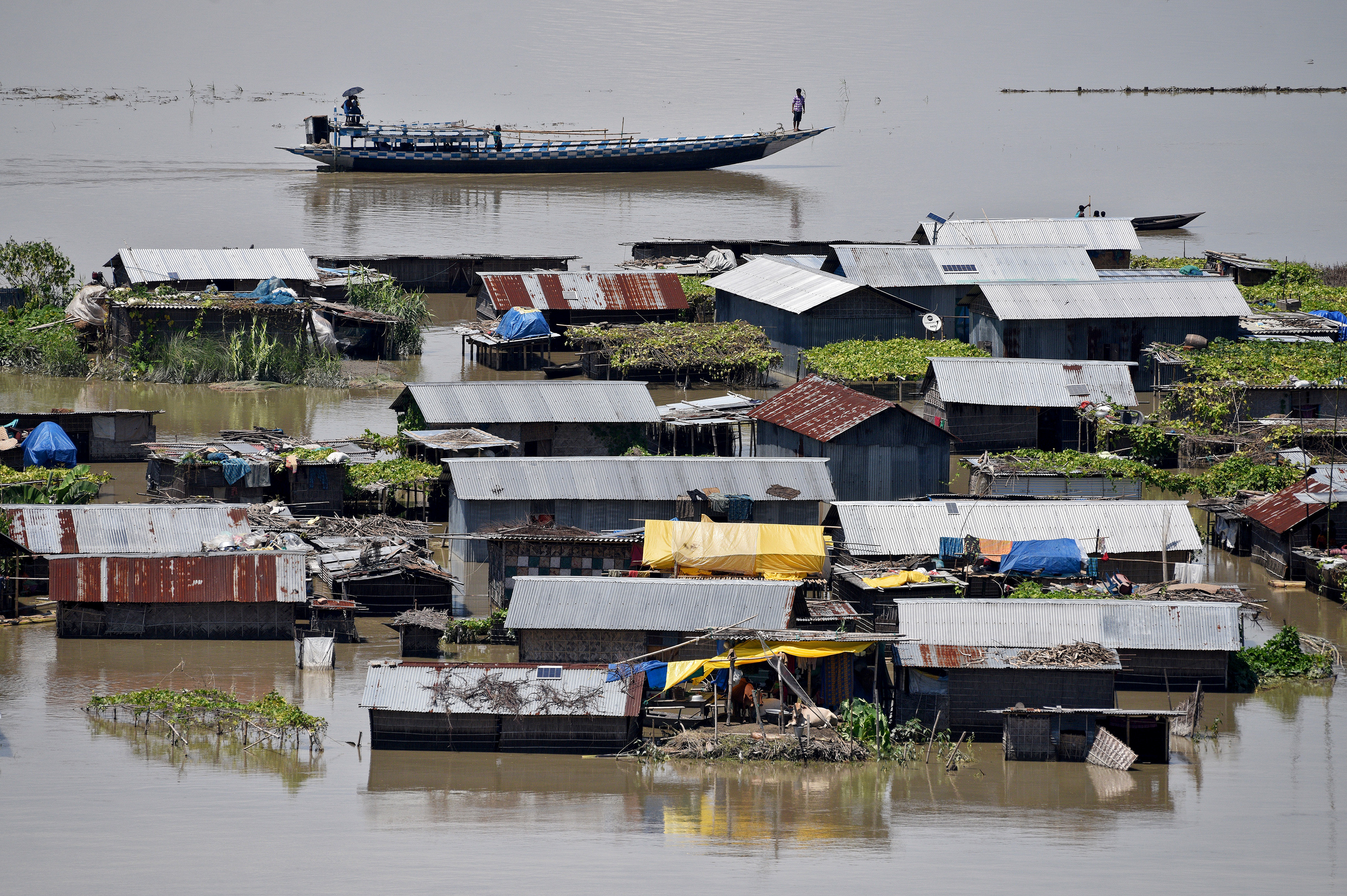
By Ruma Paul and Zarir Husain
DHAKA/GUWAHATI, India (Reuters) – Widespread floods have killed more than 800 people and displaced over a million in India, Nepal and Bangladesh, with aid workers warning of severe food shortages and water-borne diseases as rains continue to lash the affected areas.
Seasonal monsoon rains, a lifeline for farmers across South Asia, typically cause loss of life and property every year between July and September, but officials say this year’s flooding is the worst in several years.
At least 115 people have died and more than 5.7 million are affected in Bangladesh as floods submerged more than a third of the low-lying and densely populated country.
“The water level has gradually dropped. The flood situation will improve if it does not rain upstream any further,” Sazzad Hossain, executive engineer of Bangladesh’s Flood Forecasting and Warning Center, told Reuters.
Reaz Ahmed, the director general of Bangladesh’s Disaster Management Department, said there are rising concerns about food shortages and the spread of disease.
“With the flood waters receding, there is a possibility of an epidemic. We fear the outbreak of water-borne diseases if clean water is not ensured soon,” Ahmed told Reuters.
With some rivers running above danger levels, 225 bridges have been damaged in Bangladesh, disrupting food and medicine supplies to people displaced from their homes, said aid workers.
In the Indian state of Assam bordering Bangladesh, at least 180 people have been killed in the past few weeks.
“With the floods washing away everything… there is not even a trace of our small thatched hut,” said Lakshmi Das, a mother of three, living in Kaliabor, Assam.
“We do not even have a second pair of clothes to wear. The government is not providing any aid.”

Villagers use a boat as they row past partially submerged houses at a flood-affected village in Morigaon district in Assam, July 14, 2017. REUTERS/Anuwar Hazarika
Torrential rains have also hit the northeastern states of Arunachal Pradesh, Nagaland and Manipur, killing at least 30 people.
Flood waters of the Brahmaputra river had earlier in July submerged the Kaziranga wildlife sanctuary in Assam. The floods have since killed more than 350 animals, including 24 endangered one-horned rhinoceros, five elephants and a tiger.
“We are facing a wildlife disaster,” Assam Forest Minister Pramila Rani Brahma told Reuters.
Meanwhile, in the eastern state of Bihar, at least 253 people lost their lives where incessant rains washed away crops, destroyed roads and disrupted power supplies.
A senior official in Bihar’s disaster management department, Anirudh Kumar, said nearly half a million people have been provided with shelter.
In Nepal, 141 people were confirmed dead, while thousands of survivors returned to their semi-destroyed homes.
“Their homes are in a state of total destruction,” said Francis Markus from International Federation of Red Cross and Red Crescent Societies.
(Reporting by Gopal Sharma in Kathmandu, Zarir Husain in Assam, Jatindra Das in Bhubaneswar, Ruma Paul in Dhaka; Writing by Rupam Jain in New Delhi,; Editing by Tommy Wilkes and Sherry Jacob-Phillips)






